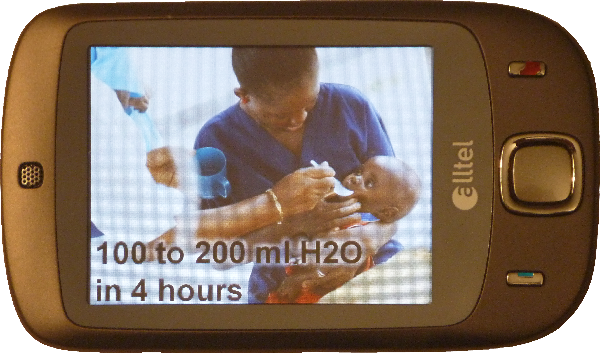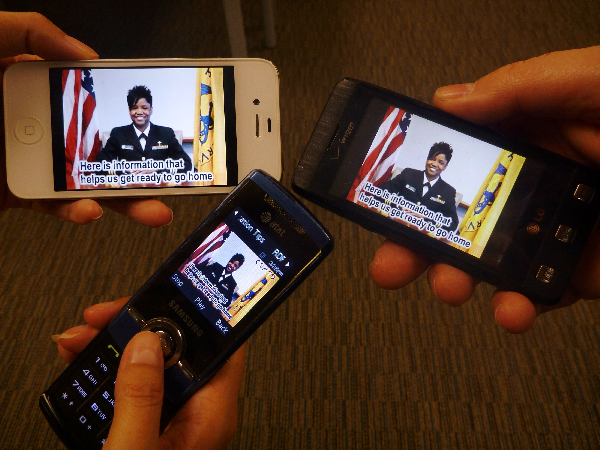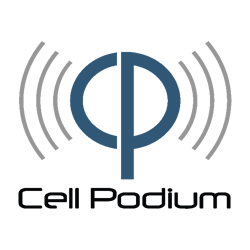 During the cholera outbreak in Haiti, the Centers for Disease Control (CDC) was trying to convey a critical message: in order to prevent dehydration, medical volunteers should give patients intravenous saline solution, not glucose solution. Mix ups were occurring because the two bags looked strikingly similar. But a lack of internet access was preventing the CDC’s life-saving message from reaching rural areas. To help get the word out, the technology company Cell Podium teamed up with the CDC using a new video messaging approach that bypassed the need for an internet connection.
During the cholera outbreak in Haiti, the Centers for Disease Control (CDC) was trying to convey a critical message: in order to prevent dehydration, medical volunteers should give patients intravenous saline solution, not glucose solution. Mix ups were occurring because the two bags looked strikingly similar. But a lack of internet access was preventing the CDC’s life-saving message from reaching rural areas. To help get the word out, the technology company Cell Podium teamed up with the CDC using a new video messaging approach that bypassed the need for an internet connection.
“The mission of Cell Podium is to provide enterprise mobile solutions for public health,” says Cesar Bandera, who co-founded the company with Peter Schmitt in 2008 on the campus of the New Jersey Institute of Technology. They developed the Just-in-Time Training for Emergency Incidents System, or JITTEIS for short, pronounced like the Jedi Knights from Star Wars. JITTEIS is a messaging system that can transmit videos to any cell phone in text messaging range, without the need for internet access or a mobile app.
With a background in telecommunications and video processing, Bandera was well positioned to start Cell Podium. He quickly secured funding through a Small Business Technology Transfer (STTR) grant from the National Institute of Environmental Health Sciences (NIEHS) Worker
The mission of Cell Podium is to provide enterprise mobile solutions for public health
Training Program to develop JITTEIS in conjunction with the emergency responder community. Along with sending important videos during the Haitian cholera outbreak, emergency responders have used JITTEIS to deploy safety videos during the Ebola epidemic, as well as logistical and coordination videos during superstorm Sandy.
In 2017, a Small Business Innovative Research (SBIR) grant from the NIEHS helped the company develop hazardous materials (hazmat) training technology. The resulting project offers realistic gas sensor simulations to incident responders, enabling them to respond more effectively to an incident based on the type and amount of a contaminant. About a dozen hazmat training organizations in the U.S. are currently using the technology.
 Last year, when Covid-19 made it risky to be close to coworkers, Cell Podium adapted JITTEIS to instruct office, retail, and warehouse workers on how to return to work safely. More recently, health departments have used the platform to disseminate vaccination messaging. The service has been used by four New Jersey counties and two industry groups.
Last year, when Covid-19 made it risky to be close to coworkers, Cell Podium adapted JITTEIS to instruct office, retail, and warehouse workers on how to return to work safely. More recently, health departments have used the platform to disseminate vaccination messaging. The service has been used by four New Jersey counties and two industry groups.
Bandera says the SBIR program aided the company in fulfilling its mission: improving public health and saving lives. He adds, if they had not received SBIR support, “at best, we would be four years behind where we are now. At worst, we would have gotten discouraged and given up.”







